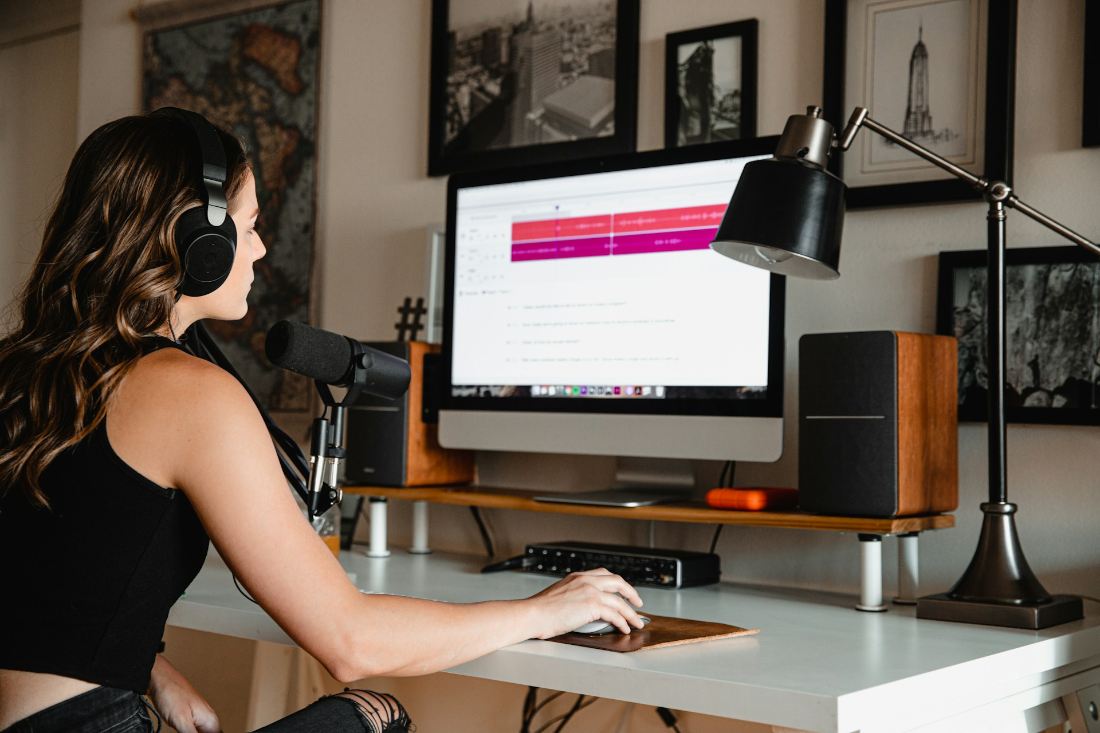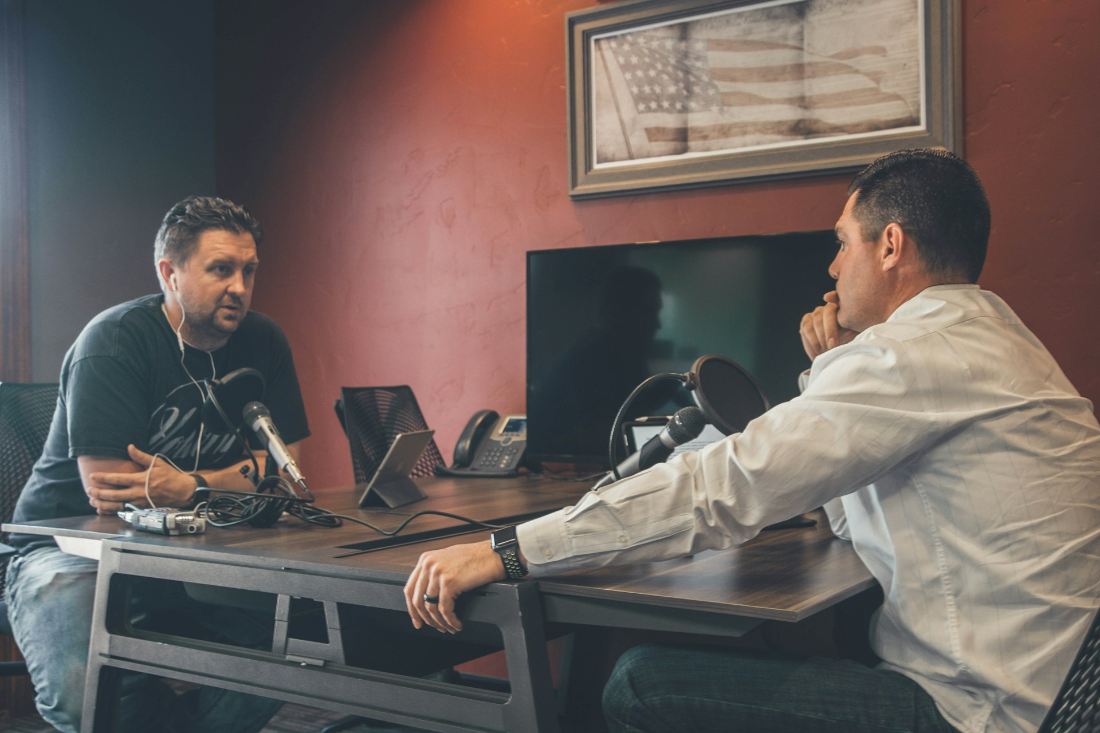Real estate agents and other industry experts may be motivated by the recent content creation trend — it seems like everyone has a podcast. Have you felt inspired or noticed gaps in the housing information market that you think you can fill? If you start a podcast as part of your content marketing strategy, you might experience unprecedented growth as you become an industry personality.
Podcasting is a powerful medium that allows you to share your voice and message with the world in a way that is authentic and personal. – Seth Godin

What Are the Benefits of Launching a Podcast as a Real Estate Agent?
Does launching a podcast with a real estate lean have that much potential for success? Discover how it benefits you and your exposure.
Showcasing Your Knowledge and Expertise
Customers may see your name in Google results but need more context to understand who you are. A robust LinkedIn profile may not be enough to convince someone to give you a call to help them find a dream home.
A podcast is the best way for people to casually get to know you and hear how much you know about the industry. If you choose to do interviews with other professionals like mortgage lenders, your network and audience will expand. With minimal effort, people will get to know your unique voice until it becomes a connection to the local real estate community.
This platform establishes immediate authority and connectivity with listeners. Many industries attempt to keep secrets behind closed doors, preventing customers from making as informed decisions as possible. A podcast is the perfect opportunity to tear down this wall, empowering homebuyers while increasing trust.
Podcasting is an amazing way to share your story and inspire others. – Lewis Howes
Getting More Exposure
If you want to expand your reach outside your city, podcasts are ideal for establishing a wider audience. A podcast’s reach expands if you commit to search engine optimization (SEO). Execute strategies that make search engines rank you highly, like creating even more content around it. It can be simple, like show notes, newsletters, downloadable resources, transcriptions and product recommendations blogs.
The episodes redirect people to these pages, enhancing their connection with the real estate agent. The breadcrumbs leading them to other platforms may have call-to-actions (CTAs), encouraging them to finally submit that interest form and converting into a lead.
Podcasting is a powerful tool for building and strengthening relationships with your audience. – John Lee Dumas
Giving Yourself a Platform to Share More Than Others
Podcasts are multipurpose, especially if you film video alongside audio. You can post content on YouTube, Instagram, TikTok and other outlets to gain a widespread audience.
For example, you may post an episode about mortgage rates. The script includes recent headlines about shifts in the market, telling listeners how rates have increased to 7% in 2024 because of inflation. This tidbit makes for a great infographic on Instagram or a snappy short on YouTube. With the right hashtags, you reach many people seeking factual information about the market.
It gives you flexibility on how to format your podcast. Long-form interviews may do well on YouTube, while tip-based content performs on TikTok. A podcast gives you numerous chances to talk about various topics that optimize in different online spaces.
Getting More Business
An enhanced online presence might bring in stronger leads, which hopefully results in more sales. The personal connection you develop with your audience is critical for solidifying a conversion. You can further drive business by encouraging listeners to engage with you on the podcast. Ask them to submit questions and feedback to deepen engagement or pose it as a networking opportunity.
If you invite guests on the podcast, they can advertise your services among their own community. You create a supportive network of listeners and professionals within the sector who care about media, marketing and community engagement. This dedication comes across to potential clients.
Increasing Revenue Streams
If you’re successful with the podcast, you could create several other revenue streams for yourself. For independent real estate workers, it can establish more stability. This cost-effective marketing strategy has less overhead than other conventional methods. It’s especially true if you have an inexpensive setup, support ads in your show and cross-promote the podcast on other platforms through other industry experts.
Many podcasts have evergreen information listeners can come back and listen to repeatedly or over time, and the information is still relevant. You generate passive income by enriching the minds of future clients.

How Does Podcasting Fit Into Your Marketing Strategy?
You may already do billboards, social media ads, cold-calling or other marketing techniques. Podcasts easily fit into an existing strategy because all other advertising styles can arise from the podcast’s content.
Podcasting fits into an existing marketing strategy by educating clientele. Demonstrating local expertise drives nearby customers to choose you over competitors. Educating them through advertising is an authentic trust-building tactic, and it encourages people to ask you questions. This leads to more connection opportunities.
One part of independent real estate companies is developing a brand voice. With podcasting, this becomes metaphorical and literal. You quickly realize you have a specific tone when talking — are you witty, authoritative or academic? People identify with personalities that mesh with theirs, so finding out what you represent on a podcast helps determine consistency in other branding materials, such as your website.
Images sell. While podcasts are not inherently visual, you can add a video element. Real estate agents sell properties 32% faster by including photos, which you can sprinkle throughout podcast video recordings or by translating them into slideshows with voice-overs from the podcast. You can also reference visual media and embed them into email newsletters with CTAs. The versatility of the podcast’s content lends itself to enhancing other marketing materials.

How Can You Get Started?
You could start recording a podcast right now using a rudimentary app on your phone. However, if you want to level up your game, here are the steps budding podcast developers take:
- Define the concept: Choose what real estate topics you want to dive into, identify niches and brainstorm potential interview or collaboration ideas.
- Plan content with calendars: Make a content calendar with what types of episodes you want, including discussions or solo recordings, and how frequently you want them posted.
- Choose equipment: Identify the best tech for your budget and tech literacy level, including microphones, headphones, camera, pop filters, recording software and hosting platform.
- Record: Schedule a time in a soundproof environment with a script or bullet points at the ready.
- Edit: Cut mistakes and pauses, add intro and outro bumpers, and enhance quality to make it a better listening experience.
Beginners may want to start with USB-connected microphones and headphones because they’re user-friendly. Angle them properly and do multiple tests to find the best sound quality.
Free Tools
Free recording software, like Audacity and GarageBand, are some of the most popular on the market with countless free videos to help you learn how to use them.
Platforms
Platforms like Spotify, Podbean and Buzzsprout are worth researching, though you can easily post episodes on almost anywhere people listen to their podcasts.

Tips for Publishing Your Podcast
Once you publish your podcast, you have to promote it — otherwise, you won’t find an audience. You must make the branding stand out with an attractive, professional aesthetic to ensure people take it seriously at first glance. This includes designing eye-catching cover art, even if you use free photo editing software like Canva.
Next, you have to share it across social media. Promote your product with confidence, even though it might feel strange at first. The best way to plug your podcast is by talking about how passionate you are about industry topics. This strategy is more likely to start conversations with other industry professionals.
Finally, prepare for feedback. Listeners will leave reviews and talk about episodes across the internet. Establish healthy boundaries on how you receive commentary, implementing what is helpful and ignoring what would prevent your professional growth.

What Topics Should You Discuss?
You may sell houses or connect buyers with grants and loan servicers. Whatever your specific job entails, there are countless topics you can dip into in a real estate podcast. It is a diverse industry. The more you share about its breadth, the more knowledgeable your audience thinks you are.
Here are some topics and subcategories to consider. Specialize in a few subject areas as you’re starting to establish authority in what you know best, and then expand your horizons. This introduces the listener to new subjects while challenging you to refine your expertise in topics you need more education on. Explore any of the following:
- Analyzing market trends: National and local price changes, interest rates and housing policies
- Buying and selling tips: Staging techniques, red flags and expectations
- Investment techniques: Owning a rental, becoming a house flipper and best ways to yield returns
- Community features: New homes on sale, community meetups and commentary from local leaders
- Interviews: Inspectors, contractors or client testimonials
- Legislative and regulatory topics: How to understand contracts, zoning laws and laws impacting property values
- Improvement and maintenance: DIY information, seasonal knowledge and sales preparation
- Real estate technologies: Trends in virtual tours, apps or software
- Mortgage basics and financing: Different types of mortgages, negotiation tactics and alternative financing options
- Lifestyle: Interior design, renovation and personal stories
- Professional development: Real estate-specific branding, building client relationships and networking
- Sustainability: Renewable energy, eco-friendly materials and net-zero topics
The best way to find inspiration if you run out of ideas is to listen to what others have to say. Countless podcasts are out there — see what they’re saying that you’re not. The curiosity may even lead to a future mutually beneficial collaboration.
The Real Estate Podcast Niche
Real estate agents can become internet personalities, and it benefits their brand. It is one of the most accessible, subtle forms of marketing in modern online landscapes because they come off as entertainment. The more value you provide in the podcast, the better of an advertisement it is for your business. With the right equipment and beginner tips, you could press record on your first episode today.
Further Reading:
For more tips on creating engaging video content for your real estate business, visit Conquering Video Anxiety in Real Estate. This guide offers practical advice to help you overcome the fear of being on camera and enhance your content marketing strategy.
Written by : Evelyn Long
Evelyn Long is a writer with over 5 years of experience in the real estate business. She is the co-founder of the home living magazine Renovated, where she writes about market trends.

